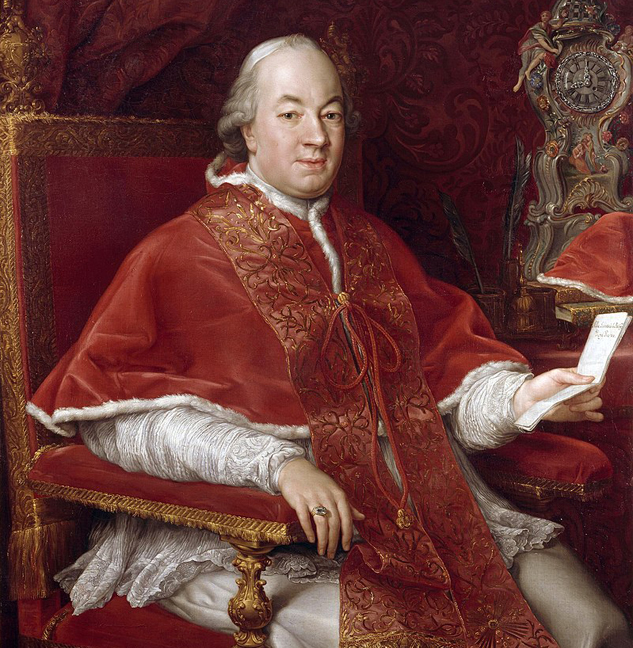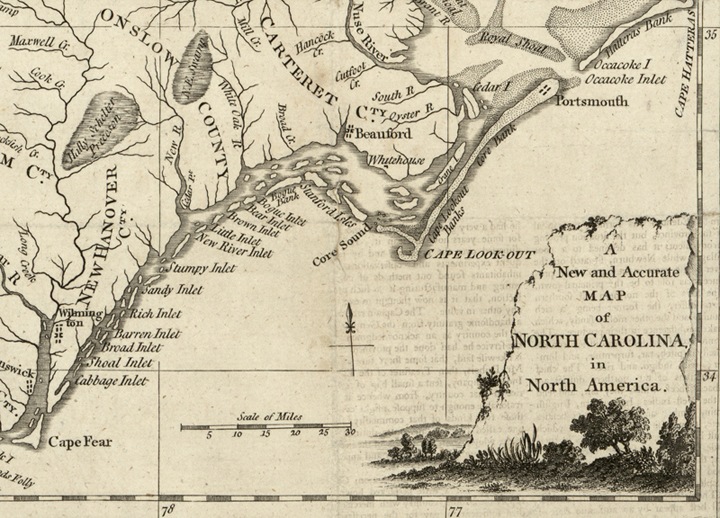It probably started out as a good party, but as sometimes happens when merriment is mixed with a little too much alcohol, it ended badly. The one redeeming factor was that key events went on record, leaving us with valuable insights into the lives of soldiers and their wives during the American Revolution.
By November of 1780 the war had begun to calm down for the British garrison in New York City. It had been an eventful year: Charleston, South Carolina had fallen to the British and the subsequent victory at Camden made it look like the southern colonies were firmly in British hands. A British attempt to strike Washington’s army at Morristown in June had failed. In September, the treason of Benedict Arnold had very nearly led to a major British coup on the Hudson River. But now winter was setting in, and although various skirmishes occurred in Westchester County, New York and Bergen County, New Jersey, for most troops in the garrison things were reasonably calm.
The party in the barracks of the 57th Regiment of Foot may have started out calmly on the evening of 30 November 1780. Three of the soldiers there, John Jones, James McCullough and Thomas Campbell, were on guard duty. That didn’t mean that they were standing on some sentry post, but that they were available for duty at a moment’s notice if an alarm occurred. All three men were relatively new to the army, having arrived in America during the winter of 1777-1778 after enlisting anywhere from a few months to a year or two prior to that. Jones didn’t live in the barracks, but was there because he was on duty and because that’s where the action was on that particular night; a married man, he lived with his wife Elizabeth in a house nearby that they shared with another couple from the regiment, Patrick and Peggy McGuire. The McGuires had joined the regiment at the same time; it’s possible that they’d all known each other in Great Britain.
The men in the barracks were in high spirits, drinking and dancing, and Peggy McGuire was there too even though her husband was not on duty at the time. But the night was still young; in fact, some of the men hadn’t even had dinner yet. At around 7 P. M. Jones left the party and went home for dinner. There he met his wife, and also ran into Patrick McGuire who asked where his own wife was. Jones directed him to the barracks, then went into the house.
In the meantime, Peggy McGuire decided she’d had enough of the party, perhaps because she was also due at home for dinner, perhaps because the men were becoming too rambunctious, and certainly because she was by this time rather intoxicated. She left the barracks, probably right around the time that her husband left their house to come for her. But James McCullough, also “very much in liquor,” followed her closely enough that some thought they were leaving together. In the darkness between the barracks and the McGuire-Jones household, things turned ugly.
In a field adjacent to the barracks McCullough assaulted Peggy McGuire. He took her shoe buckles, tore the handkerchief from her neck and opened the breast of her bed gown (a garment which, contrary to what the name suggests, was a common form of casual wear). Whether his intentions were robbery or worse is not known. She resisted and cried out “Murder!” then managed to break free. She ran back to the barracks door where she collapsed.
Her husband Patrick, meanwhile, was on his way to the barracks. He’d had no reason to think anything was amiss; he intended to inquire whether he had duty the next day and also wanted to find Peggy, perhaps to have dinner with her. Then he heard the cry of “Murder” pierce the darkness. Recognizing her voice, he hurried towards the sound. Others soldiers also heard Peggy’s cry and called for the guard to turn out. This resulted in soldiers, some armed and some not, running about in the dark from all directions.
Before the guard turned out, a soldier came upon Peggy McGuire sitting shoeless and disheveled; he helped her up and started to take her home. Suddenly McCullough appeared and grabbed her, and the two soldiers both held her as she begged McCullough to go home. Then a drunken Thomas Campbell joined the fray – he knocked Peggy down, causing him to lose his balance and fall down himself. The soldier who’d initially helped Peggy called for the guard. Then Patrick McGuire arrived on the scene.
Patrick came up just in time to see Campbell knock his wife down; Campbell got up and tried to flee, but McGuire quickly caught him and gave him a sound thrashing. Peggy, meanwhile, still tipsy and carrying her shoes, managed with the assistance of the other soldier to get to her house where she was greeted by Elizabeth Jones.
Still with us? Because the story is about to get complicated.
A corporal and a few men of the guard, fully armed but not particularly steady after their evening of drink and dance, tumbled out of the barracks and came upon McGuire beating on Campbell. The corporal, not knowing the full situation and hearing Campbell cry out in pain, assumed that McGuire was the instigator of the trouble. The corporal attempted to strike McGuire with his firelock (musket), but in his drunken state succeeded only in falling to the ground. McGuire, having easily fended off the clumsy stroke, seized the firelock and headed towards home where he found his wife in the care of Mrs. Jones and another corporal of the regiment. The McGuires each began giving their accounts of the events, but the night was not yet over.
Within a few minutes there was a pounding at the door. It was Thomas Campbell and James McCullough, now armed and supported by some other soldiers. Campbell bellowed that he demanded satisfaction from Patrick McGuire for the beating he’d received. The corporal in the house, attempting to diffuse the situation, posted John Jones at the door with strict orders to prevent any violence, then stepped outside and closed the door. The corporal told the aggressors that they would receive all the satisfaction he could offer once he’d investigated the matter. He then went to report the situation to an officer. He probably thought he was doing the right thing, but leaving the scene turned out to be a bad move.
The door was one of those with a top and bottom half that could open separately. John Jones, posted inside and under orders to prevent further trouble, opened the top half of the door to look out. He saw the bloody-faced and bayonet-wielding Campbell and McCullough, and quickly closed and bolted the door again. There followed angry knocks, and someone demanded that if one of the McGuires was not sent out they’d blow a ball through the door (that is, shoot through it with a musket). Peggy McGuire told her husband that she feared they meant to take her life or his.
Patrick called to McCullough by name, saying that he didn’t wish to hurt him. But the still-inebriated Peggy intoned with one of those remarks peculiar to inebriated people that tends to do more harm than good. She asserted that if Patrick did not hurt McCullough in retaliation for his assault on her, she would never sleep with Patrick again. This remark inflamed Patrick McGuire anew. Jones held his collar and tried to restrain him, but McGuire growled that he’d hurt even his own brother if he tried to stop him. Jones was pushed aside as McGuire seized a firelock and threw the door open. Thomas Campbell burst in and the bayonet on his firelock tore Elizabeth Jones’s gown; a crowd of soldiers flooded into the house, some scuffling ensued and then the light went out.
Patrick McGuire, fearing for his life, ran out of the darkened house into the night. Elizabeth Jones and Peggy McGuire stepped out after him and there they saw James McCullough unconscious on the ground. Peggy knelt down and took her own shoe buckles from his pocket. Other soldiers sallied out and lifted McCullough, finding a fracture in his skull the shape of rounded object such as a musket butt. He was taken to the general hospital where surgeons did everything they could, but he died after languishing for ten days.
Patrick McGuire went to an officer and reported what had happened, then returned to his quarters and his wife. Things had calmed down. In the morning he reported for duty, but was soon relieved and confined along with Thomas Campbell. He remained confined for two and a half months while an investigation was made and charges were filed against him. On 19 February 1781 he was put on trial by a general court martial for murder.
One can only imagine the thoughts and expressions of the 15 officers who sat on the court martial, listening to confused and contradictory testimony, perhaps making mental notes about ancillary details such as dancing in the barracks and the guard turning out drunk. After hearing depositions from ten witnesses over two days, they acquitted McGuire because there was insufficient evidence that he had ever struck McCullough; the only person to testify that he had done so was Thomas Campbell whose testimony can hardly be considered credible given the circumstances.
The story above comes almost exclusively from the trial proceedings, supplemented by the muster rolls of the 57th Regiment and a bit of general knowledge about how the British army functioned.[1] All four of the soldiers discussed here had enlisted in the army after the war began; as such, they were entitled to be discharged at the close of hostilities. Thomas Campbell and John Jones took advantage of this offer; it is not known whether either of them took land grants in Canada or returned to Great Britain. James McCullough was dead; were it not for the record of his trial, we would have only the muster rolls giving the date of death but no explanation. We would assume that he died of illness, ignorant of the bizarre circumstances that led to his demise. And so it is with Patrick McGuire, who died on 26 June 1781, just four months after being acquitted of murder. We know nothing about the cause of his death, nor what became of his wife Peggy.
/// Featured image at top: “English Barracks,” by Thomas Rowlandson, circa 1788. Although depicting British dragoons in Great Britain, this caricature suggests the close living conditions of British soldiers and their families in garrisons in America. Source: Anne S. K. Brown Military Collection
[1] Court Martial of Patrick McGuire, WO 71/93, 174-185; Muster rolls, 57th Regiment of Foot, WO 12/6633; both British National Archives, Kew, Richmond, Surrey. For more about British army recruiting and lives of soldiers, see Don N. Hagist, British Soldiers, American War (Yardley, PA: Westholme Publishing, 2012).










One thought on “Peggy Left the Party, and You Won’t Believe What Happened Next”
Interesting story. If McGuire was confined 2.5 months in a regular prison hulk, I’d speculate he’d died of illness he’d contracted in those horrible conditions. Though given he was not yet “guilty” or “innocent”, I wonder if his confinement was more like a comfortable parole.